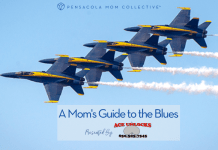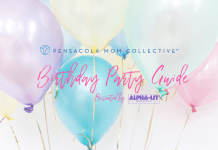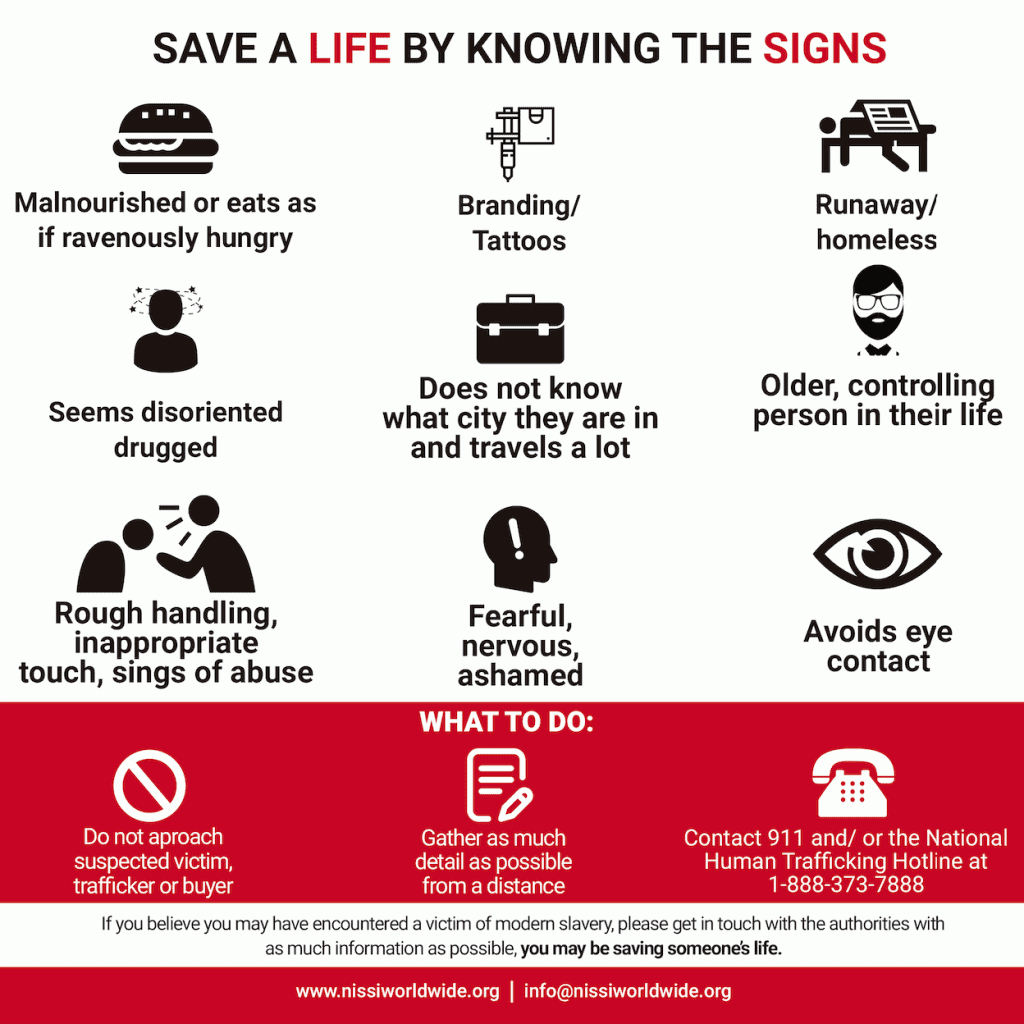Mamas, there are some days when we need to have hard conversations with our families, our friends, and each other.
Today is one of those days.
The US Department of Justice defines human trafficking and slavery as “a crime that involves compelling or coercing a person to provide labor or services, or to engage in commercial sex acts.” In other words, it is the exploitation and violation of human rights.
Human trafficking doesn’t just happen in third world countries or only in large metropolitan areas of the United States. It isn’t just predators luring victims on the internet or kidnapping innocent people off of the streets. Traffickers will lure anyone regardless of their gender, ethnicity, race, or sexual orientation.
Human trafficking and slavery happen right here in our own backyards of Escambia and Santa Rosa Counties. We may not see blatant trafficking on the streets like one may see in a large metropolitan area like Los Angeles or Las Vegas. Here in the Florida Panhandle, many times, trafficking involves victims sold or traded for illicit acts or drugs by their own family members or family friends.
Diving Into the Hard Facts About Human Trafficking
Statistics from The NISSI Project:
- 1 out of 7 runaways fall prey or are approached by a predator.
- 60-70% of trafficking victims have gone through the foster care system.
- 90% of survivors reported being arrested, but only 10% of buyers are arrested.
- 90% of women want to get out of prostitution but feel trapped and do not know how to escape.
- It’s estimated that there are over 40 million people enslaved worldwide.
- Florida is ranked as the 3rd highest state for trafficking.
“You may choose to look the other way, but you can never say again that you did not know.”
–William Wilberforce
Where Do We Go From Here?
I had the privilege of sitting down with my friend and fellow Pensacola mom, Sara Lefevers, to discuss this important topic. Sara is the CEO and President of the NISSI Project, the “Network of Immediate Services for Survivors Internationally.”
Last year, Sara and her team did extensive research on human trafficking and slavery. They participated in sting operations, search and rescues, and they networked and partnered with anti-trafficking groups all across the country. Their research was left with one big question: what happens to survivors once they are rescued?
Unfortunately, no one had a good answer to that question. Sara and her team discovered that there aren’t any immediate services available anywhere in the country for rescued survivors.
Survivors are either 1) booked and are sent to jail, 2) booked, let go, and maybe given hotel vouchers 3) advised to contact an aftercare service. With minors, typically, they are sent back to their families, although it is often a family member abusing the minor. If the minor is a property of the state, they are brought back to their group home or the Juvenile Justice Department.
Currently, it’s estimated that only 1% of victims survive their trafficking experience. The goal of NISSI is to change this statistic.
NISSI Project’s mission is to bridge the gap between a survivor’s rescue and restoration.
They will care for a survivor’s interim needs by providing immediate respite care for up to seven days. This includes:
- Ensuring that survivors have a safe place to go upon being rescued
- Providing proper medical assistance and detox treatments
- Offering survivor guidance and mentorship by one of NISSI’s survivor advocates
Providing respite care for survivors is important as this allows survivors to fully detox, rest, and find peace. During this time, the NISSI team will work with its aftercare services network to find the best service for an individual survivor’s needs. Once aftercare services are identified, the NISSI team will present those options to the survivor so that he/she can make that decision. This allows the survivor to make their first personal decision and empowers them to take back ownership of their lives.
After a survivor decides which aftercare service is best for them, a NISSI Survivor Advocate will take them to that service, ensuring the survivor’s safety and peace of mind. Once a survivor is in aftercare, the Survivor Advocate will be that person’s friend and cheerleader and will call and write letters of encouragement to show that they have someone in their corner.
What can we do to get involved in our community?
- Know the signs. Does the situation seem off? For example, is someone constantly looming over the person or not allowing them to speak for themselves? If it’s a minor, is that minor suddenly withdrawn and is always out with a “boyfriend” or “girlfriend”? Is that minor suddenly using a second cell phone that they seem to be using for people who aren’t family or friends? Be aware of abnormal behavior.
- Get Involved. Northwest Florida is unique in that there are many anti-trafficking organizations in our area. You can:
- Attend Circuit 1 Human Trafficking Task Force Forums to learn more.
- If you are interested in volunteering in an aftercare scenario, contact The Secret Place.
- To volunteer with law enforcement and search and rescue, contact KlaasKIDS and Called2Rescue.
- If you are interested in volunteering for immediate services or participating in prevention programs for survivors, contact NISSI.
- If you see something, say something. Contact 911 and/or the National Human Trafficking Hotline at 1-888-373-7888.













[…] West Florida Literary Federation, EntreCon, Pensacon, the Stamped LGBTQ Film Festival, the local Human Trafficking Task Force performances, and so many other civic and cultural organizations throughout the […]